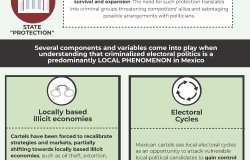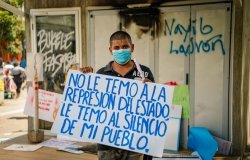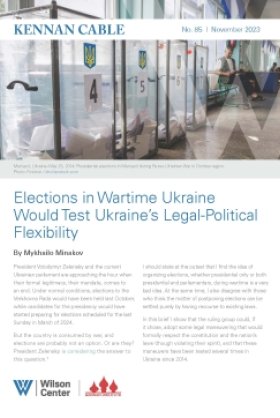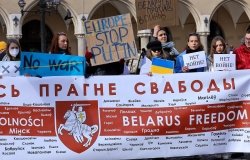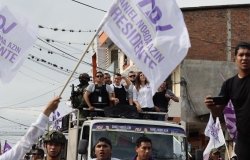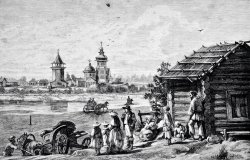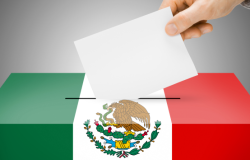Challenges for Romania's Democratic Consolidation: Assessing the 2009 Presidential Elections
The Romanian presidential elections held last fall provoked accusations of mudslinging, electoral fraud and, most recently, even interference by the occult. Vladimir Tismaneanu offered to bring this debate back to solid ground by presenting his assessment of Romania's path to democracy. Although he found no evidence of the occult, Tismaneanu did point to some idiosyncrasies of the party system in the country as well as what he called the "baroque" coalitions that are characteristic not only of Romanian politics but also of other post-communist European democracies.
Overview
The Romanian presidential elections held last fall provoked accusations of mudslinging, electoral fraud and, most recently, even interference by the occult. Vladimir Tismaneanu offered to bring this debate back to solid ground by presenting his assessment of Romania's path to democracy. Although he found no evidence of the occult, Tismaneanu did point to some idiosyncrasies of the party system in the country as well as what he called the "baroque" coalitions that are characteristic not only of Romanian politics but also of other post-communist European democracies.
Romania's contentious presidential elections were held in what was already a volatile political climate, marked by the EU's allegations of corruption, the attempted impeachment of president Traian Basescu, the IMF's requirements that the country undertake difficult reforms in order to qualify for the loan necessary to respond to the financial crisis and the subsequent collapse of the government on October 13, 2009. The November 22 presidential elections were similarly fraught, with both incumbent President Basescu and former Romanian Ambassador to the US, Mircea Geoana, claiming victory. This led the two candidates to face off in a second round held on December 6, 2009. In the end, Traian Basescu was re-elected by a slim margin.
But was this a free and fair election? Basescu's reputation for exerting strong control over the Romanian government and stable institutions might suggest that he would be capable of rigging the elections. Moreover, the attempt to oust him for "grave violations of the Romanian Constitution" have given rise to an anti-democratic image. The elections were nevertheless declared to be fair by international observers. Going beyond the OCSE's assessments, Tismaneanu suggested that Basescu triumphed over Geoana despite the many challenges he faced due to the peculiarities of Romanian political culture.
Tismaneanu argued that the key to Basescu's triumph was his charisma, which allowed the President to articulate his political program more eloquently than his main rival. While Basescu did indeed govern with a strong hand, by demanding uniform support for his goals, the allegations that he was acting against the Constitution were ultimately rejected by the Constitutional Court. In addition, the Romanian diaspora (especially in Moldova) strongly favored Basescu, due to his active foreign policy in support of Moldova. As president, Basescu's political program highlighted anti-corruption, decommunization, building state capacity in essential sectors (education, social policy, health and agriculture), and a liberal economic policy. Tismaneanu mentioned that Basescu's anti-corruption policies were only partially successful, and there has been wide-ranging criticism of his economic policies in the face of the global crisis. Nevertheless, although Basescu may not have succeeded in all spheres—a fact which his opponents were quick to criticize—none was able to present a coherent alternative program.
Thus, despite the drama surrounding the presidential elections, Tismaneanu stood by his earlier assessments that liberal values have prevailed and that Romania has become a consolidated democracy. Nevertheless, the election has also underscored the urgent need for media reform in the country, given the emergence of a few fly-by-night publications during the electoral campaign, which aimed solely at discrediting the incumbent. Tismaneanu proposed that the Romanian government concentrate on constitutional reform, especially with the goal of increasing the functionality of state institutions and the independence of the judiciary.
Speakers
Hosted By

Global Europe Program
The Global Europe Program is focused on Europe’s capabilities, and how it engages on critical global issues. We investigate European approaches to critical global issues. We examine Europe’s relations with Russia and Eurasia, China and the Indo-Pacific, the Middle East and Africa. Our initiatives include “Ukraine in Europe” – an examination of what it will take to make Ukraine’s European future a reality. But we also examine the role of NATO, the European Union and the OSCE, Europe’s energy security, transatlantic trade disputes, and challenges to democracy. The Global Europe Program’s staff, scholars-in-residence, and Global Fellows participate in seminars, policy study groups, and international conferences to provide analytical recommendations to policy makers and the media. Read more
Thank you for your interest in this event. Please send any feedback or questions to our Events staff.






